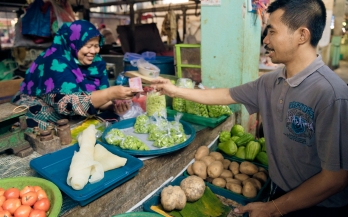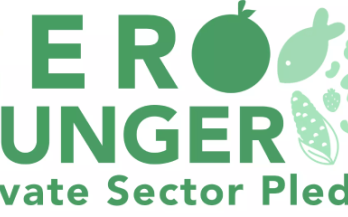

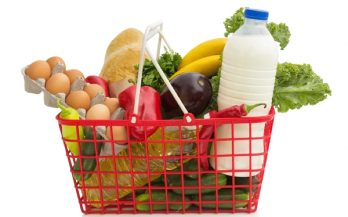
True Cost of Food Basket
- 11/10/2025
Global food systems generate a wide range of health, environmental, and socio-economic externalities that vary across regions, demographic groups, value chains, and production contexts. These include positive effects such as improved food and nutrition security, better air and water quality, job creation and community development, but also negative outcomes such as malnutrition and diet-related diseases, climate change and land degradation, unfair labour practices and rights violations. Yet, these costs and benefits are rarely reflected in the market price of food. To design future food systems that promote health, environmental sustainability, social equity/justice, and resilience, we must make these hidden impacts visible and act upon them.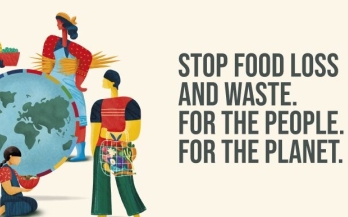
From Trash to Table? Opportunities for Repurposing Waste Products into Nutritious Foods
If food waste were a country, it would be the world’s third-largest greenhouse gas emitter, after the U.S. and China: not only does it represent the use of resources and environmental impact without a clear benefit, but as it decomposes in landfills, it releases methane and carbon dioxide. What if some of this could be avoided, and in a way that improved access to safe, nutritious foods for those who need them?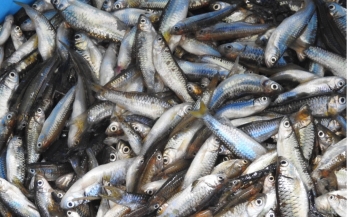
Advancing small fish production in Indonesia: Increasing protein and reduce waste
Back then, a lot of bilih were caught by fishermen, then cleaned by women, sometimes even children joined in to earn a bit of extra pocket money before being sold to buyers. But now, it is different’ Prof. Hafrjial Syandri, Bung Hatta University.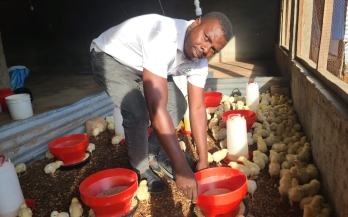
Mozambique: voice of a displaced entrepreneur in Cabo Delgado
Pemba, Mozambique – From the window of his house in Quissanga district, Cabo Delgado, Andrade Vitorino watched helplessly as his poultry farm collapsed due to strong winds and rains caused by cyclone Kenneth in 2019. But since the 2017, it is the armed conflict in Cabo Delgado province that affected his business and various economic activities, as well as the functioning of food systems in the province. “One day, a neighbour shouted that we were under attack, and we all ran away, leaving everything behind. A few days later I heard that everything had been burned down. Houses and everything, including my poultry,” said Andrade. Seated on a plastic chair and turning his back to his house made of clay, in one of Pemba's neighbourhoods, where he is starting new life he says, “I didn't have time to take anything. Just my documents. My house, my aviary and my dreams were left behind.”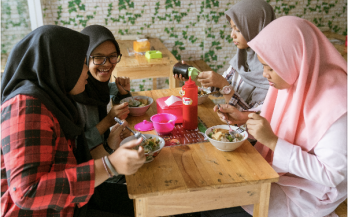
Utilizing local food and preventing food waste in Indonesia’s School Meal Program
On 27 May 2025, the second episode of Bincang Pangan Sehat Lestari (Talk Series on Sustainable and healthy diets) brought together experts, policy makers, practitioners, and development partners to discuss the environmental perspectives on Indonesia’s school meal program (MBG). The seminar saw active participation, with attendees engaging in panel discussions. Over 30 Participants attended the seminar in person, and over 500 participants from sub national food agencies and NGOs attended it online.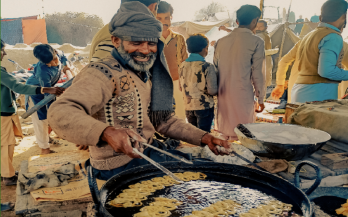
GAIN Working Paper n°54: Leveraging Food Culture in India to Promote Nutritious and Sustainable Food Preferences
- 09/07/2025
Food culture is often understood as the practices, beliefs, and traditions surrounding food and eating within a particular society or community. It encompasses various aspects of traditional dishes and recipes, culinary techniques and cooking methods, mealtime rituals, social aspects, and symbolism. Food culture in a critical factor shaping food choices by influencing eating and dietary norms and habitual behaviours. Given this, it is essential to clearly define the dimensions of food culture (particular to a country or region) if one is to seek to leverage its profound impact on individuals and communities. This working paper thus explores the multidimensional nature of food culture in India, emphasising its deep-rooted connections to cultural identity, social bonding, and wellbeing.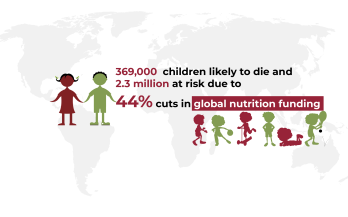
369,000 children likely to die and 2.3 million at risk due to 44% cuts in global nutrition funding
Experts warn of the devastating toll of aid cuts on malnourished children and how it will impact generations to come—not just as huge human cost—but also a huge cost to development, economic growth, and future global prosperity.
GAIN Working Paper n°48-Improving Affordability of Nutritious Foods Through Packaging Innovations
- 10/03/2025
Packaging can keep foods safe; help make them appealing, convenient, and long-lasting; and convey key information about them to consumers. At the same time, packaging is an important contributor to food system waste and a major driver of certain foods’ prices in LMICs. As such, it is a sector ripe for creative disruption as part of food system transformation – to ensure safe, nutritious foods can reach the consumers who need them, in affordable forms and with limited negative environmental impact. This paper has considered in detail three packaging innovations that could be used to make nutritious foods more accessible to lower-income consumers: single-serve packaging, reusable packaging, and selling products in bulk without individual packaging.